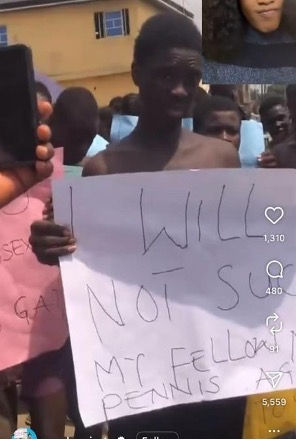LAWYERS ALERT PARTNERS WITH THE GENDER UNIT (GU) OF THE NIGERIA POLICE FORCE AND POLICE DUTY SOLICIT
- Mase Blessing

- Nov 19, 2020
- 4 min read
Background
Over the years, there have been serious increase in Gender Based Violence (GBV) in the society. The upsurge in these violence manifests in the forms of forced marriages, mental and sexual assaults, rape, harmful traditional practices, socio-economic Violence, Female Genital Mutilation etc. GBV has resulted in a lot of psychological and mental trauma for Victims. Statistics have shown that 3 out of every 10 Nigerian experience GBV at age 15. It is from this view that GBV can be seen as a form of discrimination that seriously inhibits women’s’ ability to enjoy rights and freedom on the basis of equality with men. In other words, GBV is anything done to put a woman at a position of not being able to enjoy some rights as provided by law equally with men.
The Gender Unit and PDSS.
In responding to the rise in GBV, the Nigeria Police Force created the Gender Unit at the Force Criminal Intelligence & Investigation Department (Force CIID) across the six geo-political zones of the country on 21st October, 2014. The major task before this unit is to encourage survivors of GBV to report incidence of violations for possible prosecution of perpetrators anyone culpable of such offences. A former Inspector General of Police, Solomon Arase once said that the gender unit of the Force CIID was set up due to the predominant rate of sexual and gender based violence in the society. Through the years, the GU has brought justice to the door steps of Nigerians faced with these issues.
By the establishment of the GU, the Police Force is no longer hesitating to prosecute anyone found culpable of a GBV to serve as a deterrent to other perpetrators. This has helped to curb Sexual and Gender-Based Violence in Nigeria and the menace of the Violence. Force Gender Unit had since its inception embarked on full campaign against SGBV due to the daring dangers it portends.
Violence against women is the most pervasive, yet a less recognized human right in the world. A lot of cultures and traditions in the society, unconsciously or ignorantly support violence against women and girls. As a result of this, the so-called inhabitants of these cultures and traditions harbour the perpetrators of these crimes and condemn the victims with tirades, thereby, encouraging impunity and recurrence. Most perpetrators have succeeded in sending most women and girls to emotional and psychological torments by their actions.
Working hand-in-hand with the GU is the Police Duty Solicitors Scheme of the Legal Aid Council of Nigeria which was established in 2004 to help reduce the excessive use of partial detention by providing free legal advice to suspects at the police stations, the points at which the decision to detain or release pending trial are being made. Services of young Lawyers completing their compulsory national services are being deployed as duty solicitors to various police stations in the states.
Challenges Identified by Partners.
Lawyers Alert, a Rights Based Organization is partnering with the GU and the PDSS in addressing the challenges faced by both the GU and the PDSS in the course of discharging the duties imposed by the tasks here. The partnership began with meetings held in three project states of Plateau, Niger and the FCT on the 10th and 17th of September 2020. The first Meeting was held in FCT to address some of the challenges being faced in delivering the respective mandates that include:
Obtaining sustainable Evidence
Inadequate synergy between the Police /stakeholders
Lack/Inadequate Funding
Lack of shelter for survivors
Inadequate Professionalism
Discrimination and Stigmatization
Partiality
Survivors Stigmatization
Inadequate sensitization of members of the public/survivors of violence(SGBV)
Religious Influence/Societal Norms and Practices
Silence Culture.
Exclusion of Religious Bodies in active Stakeholders meeting
Poverty.
Family Influence(Societal/School).
Environmental Factor.
Rigor of Judicial Processes.
Political Interference.
Unwillingness of Survivors of Violence.
Media.
The second meetings were also held in the three project states on the 5th and 12th November 2020. The purpose of the meetings is to introduce women groups to the GU and the PDSS. It was also to create a network of organizations that work together to address issues of SRHR and GBV in Nigeria. it was in the course of these meetings that they identified the challenges that Women groups faced in reporting violations. At the end of the meetings the following challenges clearly standout:
Awareness creation/sensitization on SGBV.
Professionalism/Non Discrimination(Police and other security)
Non stigmatization of Survivors of SGBV
Synergy between Police, PDSS and other Women Groups
Inadequate Funding.
Media.
Lack of Shelter for Survivors
Transfer of an Office.
Conclusion
Trainings should be given to police officers working on SRHR and GBV issues. LA believes if the capacity of officers working in these areas is built the challenges identify by the women groups will totally be eliminated
Apart from all that have been said so far, All the partners in this relationship recognise the need to develop a Women Satisfaction Index. This tool aims to monitor women’s satisfaction with the services rendered. From time to time, analysed results from this tool are shared with the GU & the PDSS towards addressing gaps noticed for improved service delivery. This will be ongoing even as LA & its partners continuously provide free legal services & document violations. LA believes that as the GU & PDSS begin to effectively address VAWG alongside, these issues will be reduced & access to justice enhanced for women. This model of interventions in the 3 states can be replicated in the other states towards effectively addressing VAWG in Nigeria.








Comments